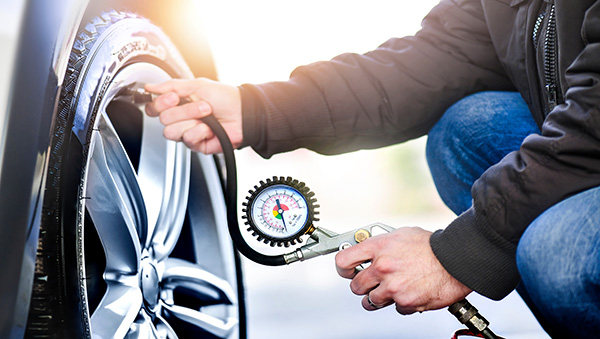
When it comes to maintaining your car’s tires, you’ve probably heard about nitrogen inflation. It’s marketed as a superior alternative to regular air, promising benefits like improved fuel efficiency, longer tire life, and better performance. But is it worth making the switch? Let’s see what nitrogen inflation is, how it compares to regular air, and whether it’s the right choice for your vehicle.
What Is Nitrogen Tire Inflation
Nitrogen tire inflation replaces the standard air in your tires with nitrogen, a gas that makes up about 78% of the air we breathe. The key difference is that nitrogen used in tires is purer, containing much less oxygen and almost no moisture. While regular air is a mix of nitrogen, oxygen, and water vapor, nitrogen inflation minimizes the presence of these additional elements, which can influence tire performance over time.
You’ll often see nitrogen inflation being promoted at service centers, especially for high-performance or luxury vehicles. But is the hype justified, or is it just another automotive trend?
Benefits of Nitrogen Inflation
Advocates of nitrogen inflation highlight several advantages over regular air. Let’s explore these claims in detail:
Reduced Pressure Loss
Nitrogen molecules are larger than oxygen molecules, which means they escape through the tire walls at a slower rate. This can result in more stable tire pressure over time, reducing the need for frequent top-ups. Proper tire pressure is essential for optimal performance and fuel efficiency, so this stability can be a significant perk.
Lower Moisture Content
Unlike regular air, nitrogen inflation is virtually moisture-free. Excess moisture in tires can cause fluctuations in pressure, particularly during temperature changes. By using nitrogen, you reduce the chances of pressure changes caused by water vapor expansion, which can improve your tires’ consistency in extreme weather.
Longer Tire Life
Moisture in regular air can contribute to oxidation, which weakens the rubber and metal components of your tires over time. Nitrogen inflation reduces this risk, potentially extending the life of your tires.
Improved Fuel Economy
Maintaining the correct tire pressure is one of the simplest ways to boost fuel efficiency. Nitrogen inflation, with its ability to hold pressure more effectively, can help you get the most out of every gallon of gas.
Are There Any Downsides to Nitrogen Inflation
While nitrogen offers several benefits, it’s not a one-size-fits-all solution. Here are some potential drawbacks to consider:
Availability and Cost
Nitrogen inflation isn’t as widely available as regular air, and it often comes at a higher cost. If you need to top up your tires but aren’t near a nitrogen service provider, you might find it inconvenient.
Maintenance Still Matters
Even with nitrogen, tire maintenance is necessary. Checking your tire pressure regularly, inspecting for wear and tear, and rotating your tires are all crucial steps in ensuring they perform well and last longer. Nitrogen doesn’t eliminate the need for these routine checks.
When Should You Consider Nitrogen Inflation
If you drive a luxury vehicle, participate in motorsports, or live in an area with extreme weather conditions, nitrogen inflation is worth considering. Its ability to maintain stable pressure and resist moisture-related issues can make a noticeable difference in these situations.
For drivers in Marysville, WA, where weather can be unpredictable, nitrogen inflation could help keep your tires performing consistently. However, if you’re an everyday commuter or casual driver, regular air may be sufficient for your needs without the added cost of nitrogen.
Keep your tires in top condition with expert service from Bud's Auto Repair & Transmission in Marysville, WA. From inflation checks to comprehensive tire care, we’ve got you covered. Contact us today!